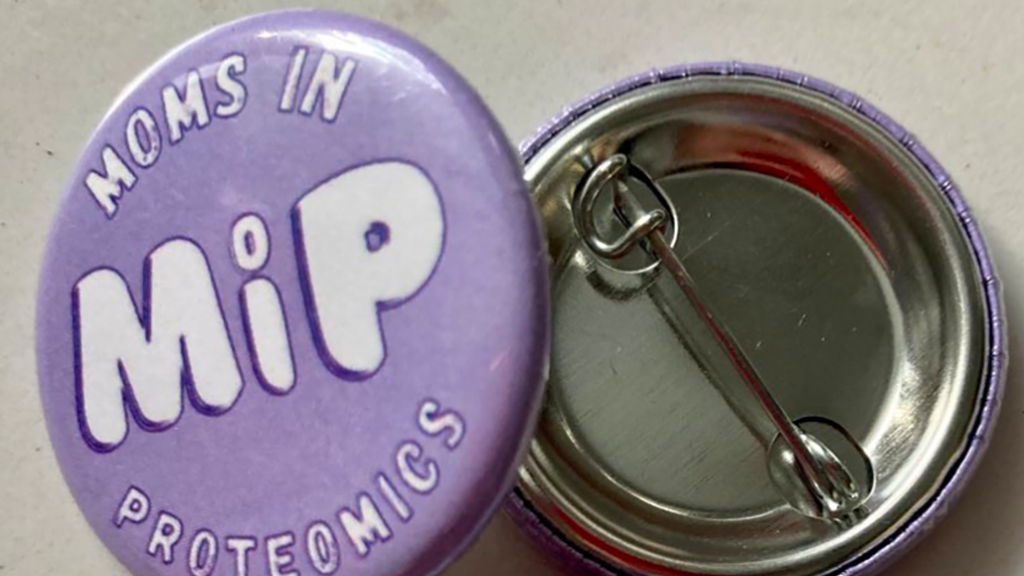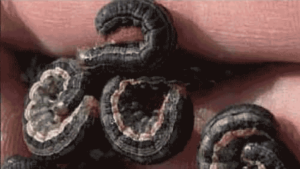Women in STEM
NETWORKING GROUP ENCOURAGES DIVERSITY IN SCIENCE

NOTING THERE WERE very few women speaking at or chairing sessions at a convention she attended, Dr. Jennifer Geddes-McAlister knew that needed to change. A researcher from the University of Guelph and a mother of two young children, she knows firsthand the challenges women, especially mothers, face in the workplace. To support and encourage other women in her field, she reached out to some colleagues and formed the group Moms in Proteomics (MiPs).
Proteomics is the study of proteins; the field is rooted in traditionally male-dominated scientific disciplines, including chemistry, engineering, and mathematics. “I wanted to make a network of women in the field and say ‘Would you like to speak at this event’ or if there’s an award could I put your name forward and nominate you,” says Geddes-McAlister on why she initiated MiPs. “I thought the only way that we get more women in these positions is if we actually talk about them and nominate them and recommend them.”
Many universities, like the University of Guelph, have a significant number of women studying in undergraduate programs in the science, technology, engineering, and math (STEM) fields; the percentage of women studying beyond the undergraduate level drops significantly and very few are found in senior roles such as department chairs or deans. In Geddes-McAlister’s department, only about 25 per cent of the faculty are women.
MiPs has approximately 175 members from 15 countries and includes not just mothers but also young women who have joined as they see the benefits of connecting with those who are paving the way to ensure the needs of women in STEM are being met. MiPs’ membership also includes some men, including some of Geddes-McAlister’s mentors.
The group focuses on recognizing and supporting mothers in proteomics and STEM disciplines in general. Members are encouraged to promote STEM careers in their own communities.
GETTING STARTED
The first session Geddes-McAlister hosted was a discussion panel at an international proteomics meeting that saw a good turnout and high participation from panellists. The feedback from the session was very positive, with participants acknowledging the need for support for women in the industry and to encourage change in academia, administration, and the industry. With help from their corporate sponsor, Bruker, MiPs has hosted several networking events, online and in-person, to allow members to meet and make connections with other women in STEM — both professional and personal. Creating opportunities for mentoring is an important part of the organization to encourage more women to participate.
To promote MiPs, Geddes-McAlister designed buttons to distribute to the group’s supporters. Three-quarters of the attendees at a plant proteomics conference in Greece proudly displayed these pins on their lanyards, demonstrating their support for the groups’ goals, with many taking more home to their colleagues and family members.
A recent group discussion focussed on what resources attendees to conferences needed; one of the biggest concerns raised was childcare at events to encourage more women to participate. Geddes-McAlister believes that this is one area where solutions could be found to support and encourage the participation of women.
GRAIN FARMERS OF ONTARIO RESEARCH
Recently, Geddes-McAlister completed a four-year research project with Grain Farmers of Ontario, studying fusarium head blight in cereal crops, specifically mycotoxin contamination. Her research team has been studying wheat varieties and how they degrade or detoxify the mycotoxin that causes health effects in animals and humans. Using different molecular and biochemical strategies, Geddes-McAlister is trained in mass-spectrometry-based proteomics and is studying all the proteins that change in the plant when the mycotoxin is present. The research compared resistant and susceptible varieties to see how the proteins are different, with an overall goal of being able to make safer food products from wheat.
More information about MiPs can be found at www.momsinproteomics.ca. •



























